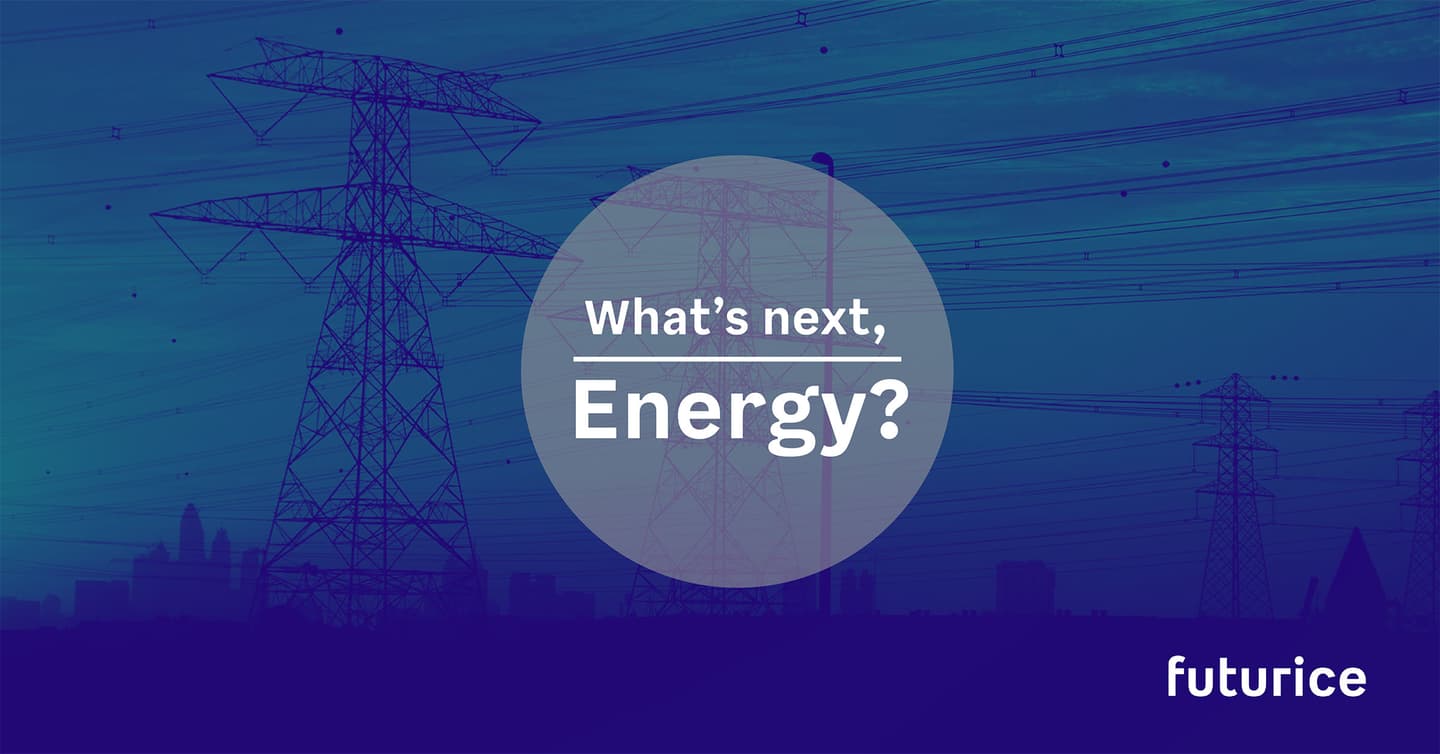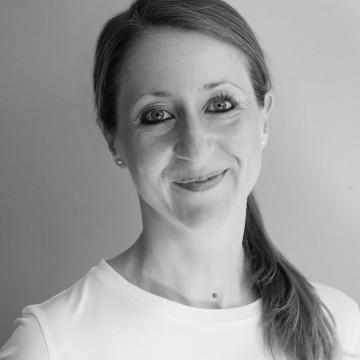What’s next, Energy? - An interview with Pirja Heiskanen
Before joining Futurice as Director of Data-enabled strategy and operations, Pirja Heiskanen worked at Fortum for over 10 years in various roles. She has been involved in power market insight and price forecasting, production planning and sales as well as hedging and financial trading with Nordic and Russian energy markets. She is also currently a member of the board of directors at Helen.

At Futurice Pirja has continued to focus on the energy sector working with various clients, driving their digital development and business success.
Which are the current interesting developments in the energy sector?
Looking at the current developments in the market, I think that there are a couple of very interesting development areas.
One is definitely the increasing amount of intermittent solar and wind production. As the production of these energy sources varies based on the weather, there is a need for close to real time management of flexible energy sources and energy storages as well as active demand response management. All this will increase price volatility. So, there will be more and more opportunities to capture value for those who have flexible production or ability to vary the loads and who build proper tools to enable this.
Another interesting area is smart metering and datahub. Smart metering enables closer to real time metering of locational consumption of electricity. All this location based consumption data will be collected in the datahub. In Finland the datahub is planned to be in place in 2022. This will offer opportunities for energy companies as well as new entrants to develop new data based consumer services.
Data, analytics and AI has become an increasingly important topic in business. What role does it play in the energy sector?
Energy companies use a lot of data. In production there is real-time data from production, weather and hydrological forecasts and actual measurements, historical data on power prices, production and consumption. Different models are built based on the data to forecast electricity market prices, optimize the production and for example develop algorithm based financial trading strategies. On the sales side smart metering and datahub offer better possibilities for forecasting energy consumption in different customer segments. Datahub will also enable the management and aggregation of small scale demand responses from e.g. electrically heated households or batteries of electric vehicles or development of other consumer services.
Can you share any good examples of companies that are using data, advanced analytics or AI to improve their business performance?
Fortum Apollo is a good example where Futurice has been involved. Apollo is a production planning tool that uses a stochastic optimization model to optimize the use of hundreds of hydropower resources. It provides the user with an interface to define the desired input as well as an easily understandable way to view and analyse the resulting scenarios. One optimization may involve tens of thousands of different time series, so managing and storing the input & output data in a structured way was an important issue, along with the performance optimization of the whole system.
Apollo improves the hydro asset efficiency which is good for the bottom-line of the business and the environment.
What does it take to build data and AI augmented decision support systems?
Building largely automated and advanced analytics & AI augmented decision support systems takes a long time. You need to develop an optimization model or a forecasting algorithm, which is experimental work by nature and requires deep knowledge on advanced analytics, machine learning etc. But that is not enough. As experts use these models to support their decision making, you need to ensure the usability of them and define human-model interaction: What type of input is needed and how will you visualise and analyse the results. In addition, you need to ensure close to real time quality data. This requires proper solutions for data governance and storage. Scalable cloud based solutions would offer performance and flexibility.
Why do energy companies need a systematic approach for capturing opportunities with data and analytics?
Developing very complex models is not a one time task but requires continuous development - and it can take years. One should start with simpler models and improve them along the way. In addition, it is not enough to only build the model, you also need proper data flows and storages. To make this happen requires investment into right competences and systems. In conclusion it is important to have a long term vision and to capture the value from data and analytics in bits and pieces along the road.
How can scenario based forecasting help to increase productivity in times of crisis?
Scenario-based forecasting makes it possible to run several different production plan scenarios. It also makes it possible to create a new production plan on short notice as the situation changes. This helps you to prepare and react when there is a lot of uncertainty about the future.
If you think about the future of energy, where do you expect the biggest challenges?
I think that the biggest challenge is that when we move towards cleaner intermittent energy production there is an increasing need for more active management of the whole energy system closer to delivery. We are already seeing periods of negative electricity prices. Negative prices basically imply that someone would be willing to pay for you to consume electricity. Meaning that there is not enough flexibility in the system.Therefore, there is a need to aggregate and actively manage all, even small, flexible elements: flexible production, energy storages, such as EV or heat batteries, as well considering households as both consumers and producers. Intelligent largely automated solutions are needed to enable this.
And all these problems could be solved if there was a viable solution for large scale storage of electricity.
To learn more about our energy approach, check out our energy page.
 Simone MittererGlobal Head of Brand and Communications, Germany
Simone MittererGlobal Head of Brand and Communications, Germany

